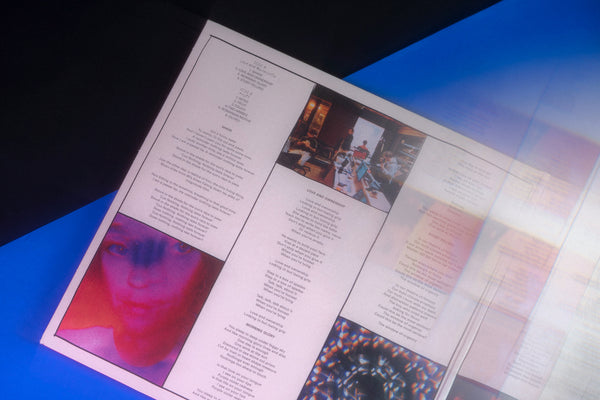Digital/Divide: May’s Electronic Music Reviewed
Digital/Divide is a monthly column devoted to any and all genres and subgenres in the great big beautiful world of electronic and dance music.

As the signature rhythm of reggaeton, dembow is almost inescapable in America today. Recent Billboard charting hits like DJ Snake’s “Taki Taki” and the Benny Blanco-meets-Tainy collab “I Can’t Get Enough” depend on the infectiously danceable Caribbean-derived beat, to say nothing of the countless purely Spanish-language singles that employ it. And with massive festivals like Coachella and Lollapalooza deigning to include select Latinx acts in their 2019 lineups, that percussive pattern will continue to resonate in the ears of listeners across the country.
Of course, the mainstreaming of reggaeton offers but a tantalizing glimpse of a broader and subtly layered música urbana universe, one that spans multiple countries throughout Latin America and elsewhere. Those willing to go deeper into the scene won’t have to dig long before discovering Tomasa Del Real, the Chilean artist representing the neoperreo underground. The 2018 effort Bellaca Del Año placed her front-and-center vocally over twisty yet faithful dembow-driven tracks, and her follow-up ** TDR (Nacional)** keeps that same energy.
With clear intent to dismantle the hypermasculine history of reggaeton while creating more inclusive spaces within it, she works here with a number of producers, including Geeflowllc and fellow Chilean El Licenciado, to push the style into new and welcoming places. A handful of cuts feature DJ Blass, the genre fixture who gave Del Real the foundation for last year’s independent alarm call “Barre Con El Pelo.” With frequent production partner Mista Greenz, they arrange urgent opener “Neoperreo Bailo” and the playful “Braty Puti.” Through the album, her voice ranges from dramatic deadpan to auto-tuned extremism, the latter particularly prominent amid the carnival ride dizziness of “Y Nos Vamos.” Breaking from the dembow approach, Argentinian Galanjah and Santiago locals Ceaese and Nass G join the singer for “Los Dueños Del Neoperreo,” a pan-Latinx posse cut.

Alessandro Adriani: Morphic Dreams (Stroboscopic Artefacts)
A Berghain regular with retro tastes, Alessandro Adriani operates as a key figure in the global industrial techno movement. At times recalling the classic works of Chris & Cosey, his sophomore outing Morphic Dreams revels in a niche where stark arpeggiated sequences unspool for maximum hypnagogic efficiency. He can conjure dystopian dread on “Storm Trees” and epic energy on “Raindance.” Despite ritualistically dark ambient sections like “Casting The Runes,” the dancefloor is never far from his mind, something made clear on the EBM updates “Dissolving Images” and “Invisible Seekers.” What elevates the record above the prosthetic phonies and countless other actors out here reviving some contrived notion of 1980s Belgian New Beat is how comfortable Adriani sounds draped in that visceral vintage aesthetic, shimmering on the luxe “Crow” and willfully adrift in the barely muted cacophony of “Hors De Combat.”

Diplo: Higher Ground (Mad Decent)
Boasting the sort of pop culture ubiquity normally reserved for Instagram influencers and YouTube-based personages, Thomas Wesley Pentz remains inextricable from contemporary electronic music despite the groans and grumbles of his oft un-fun detractors. Though Major Lazer’s global mission remains paramount, the massive success of his Silk City collaboration with Mark Ronson and Dua Lipa returned the producer to the worn-in comforts of the 4/4 dancefloor. Continuing in that vein, this far-too-short EP brings him back to house music, a format in which he consistently excels. Naturally, he’s brought some friends along. Montreal’s Blond:ish and Lagos’ Kah-Lo keep warm-up DJ tool “Give Dem” relatively muted ahead of potential Tove Lo pop floorfiller “Win Win.” These are bookended by tracks credited primarily to Diplo himself, the best of these being “Hold You Tight.” Given the lead single treatment, the groovy cut spreads a wide ethereal net before revealing a hypnotic quasi-mantra vocal bursting with love and positivity, right on time for all your summertime euphoric feels.

J-E-T-S: Zoospa (Innovative Leisure)
Though its output has now slowed to scarcely a trickle, for a time Jimmy Edgar’s Ultramajic imprint made for one of the most reliably enjoyable labels in electronic music. With cofounder Pilar Zeta, the producer parlayed his time as Warp Records’ popwise misfit into a number of engaging releases there including 2015’s J-E-T-S EP The Chants. Four years later, that duo of him and Machinedrum revive the project for a full-length that plays to outsized hip-hop and post-IDM oscillations. Informed by their respective histories, that fusion of styles comes off better than most who venture into this sonic subfield. Reliant on synth mischief, the off-kilter melodies on “Potions” and “Real Truth” find sensible counterbalance via grounded guests Dawn Richard and Tkay Maidza, respectively. Of course, it’s the instrumental tracks that truly captivate, such as the new age ebb and flow of “Hyper Hibernate” or the video game trap trappings of “Q Natural.”

Yagya: Stormur (A Strangely Isolated Place)
Despite having dropped at the tail end of Force Inc. Music Works’ astounding run, Yagya’s 2002 full-length debut Rhythm Of Snow ranks rather highly with fans of that sprawling catalog of seminal minimal techno and tech-house. Even after that label’s collapse and the subsequent downplaying of dub-informed sounds in clubland, the Icelandic artist continued to make album after album of frequently echo-drenched floorfillers under the moniker. For Stormur, his umpteenth full-length to date, he sequences an hour-long odyssey of seamlessly mixed and sublime dance music. Tension builds and dissipates on “Stormur Fjögur,” while “Stormur Sjöundi” rings alarms in distant rooms. The record reminds me of Vladislav Delay’s more lucid moments as well as selections from Richie Hawtin and John Acquaviva’s workhorse Plus 8 imprint, particularly on the seemingly ceaseless thump of “Stormur Fimmti.” Yet its Yagya’s relatively delicate touch and ambient sensibility that guides so much of the record, something he starts to abandon in gratifying fashion for its warehouse grind of a closer “Stormur Tíundi.”
Born, raised and still living in New York City, Gary Suarez writes about music and culture for a variety of publications. Since 1999, his work has appeared in various outlets including Forbes, High Times, Rolling Stone, Vice and Vulture, among others. In 2020, he founded the independent hip-hop newsletter and podcast, Cabbages.
Related Articles
Join the Club!
Join Now, Starting at $44Exclusive 15% Off for Teachers, Students, Military members, Healthcare professionals & First Responders - Get Verified!












